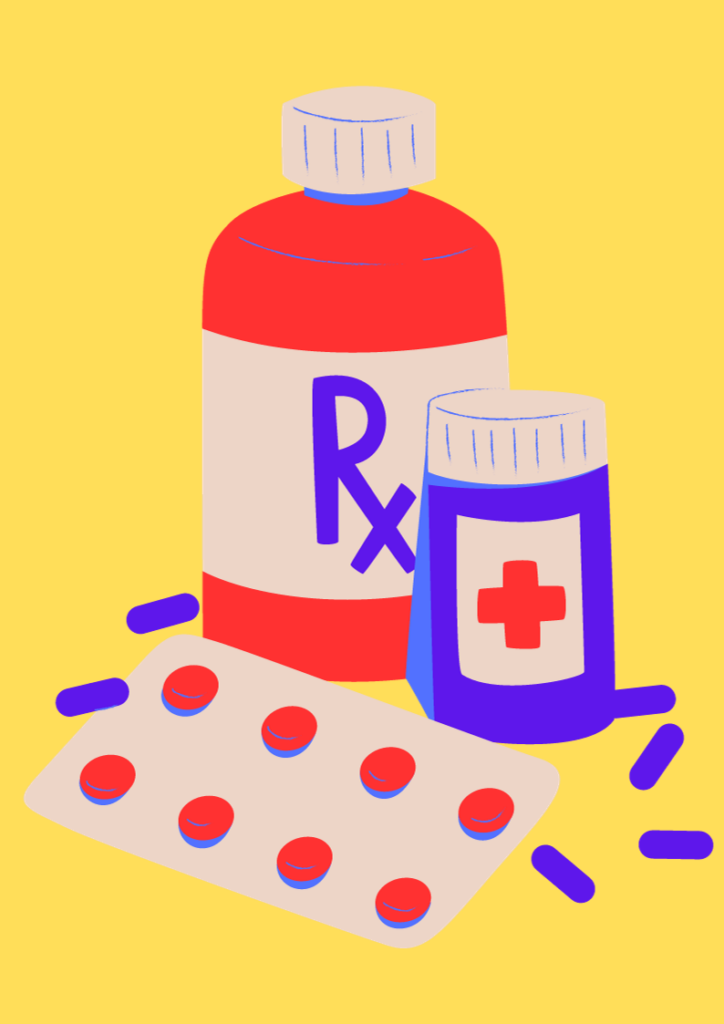Managing Medications At Home
Many New Zealanders who have health or disability needs or a chronic condition need to take a number of medications several times a day. Managing medications is a home health basic!
- Complete a medications list and keep it updated. Ensure refill information is also current.
- Be sure you know what each medication is for. Know what each medication does (relieves pain, etc). Talk about what will happen if the medication is not taken (symptoms might worsen, condition might get worse).
- Include details of food or medication allergies or sensitivities with this list. Keep information in a folder or binder in an easily accessible place.
- Help your family member develop a system to store medications and remember to take them. Be sure that other family members, health visitors, or friends know where this important health information is kept, in case you are injured, become ill, or die suddenly. It is wise to give all close family members a copy of the medications plan, and any updates.
- The medications list should include information about nutritional supplements, vitamins, eye drops, herbal products, aromatherapy agents, or nonprescription drugs that are used regularly. Complete our Medications Care Tool and keep it up to date.
- If a health issue arises, your GP can pinpoint whether it is due to an interaction between your prescribed drugs, and other products being used.
- Establish a medication routine to reduce the risk of missed doses, or double doses. You can buy inexpensive multi-compartment pill boxes at The Warehouse or $2 shops to keep track of daily medications.
- If your family member takes a number of pills several times a day, consider having your chemist seal them into special packs so it is easy to see when it’s time to take medications. There is a cost for this service but it is worth it to know you have minimised the risk of taking too much or too little medication (or the wrong medication!).
- Invest in a MedicAlert bracelet or neck pendant for allergies and chronic conditions. Medical professionals see the bracelet, read the details, and can save vital time in diagnosis. Paramedics and ambulance officers trust MedicAlert, which has been available in New Zealand since 1962. The MedicAlert Foundation does not refuse its service to anyone if they cannot afford to pay. Learn more at www.medicalert.co.nz
- If your family member finds swallowing difficult, crush pills and add them to food or liquids. You can buy inexpensive crushing devices at the chemist, or it is usually easy to crush pills between two spoons. Some time-release medications can be dangerous when they are removed from their capsule and/ or crushed into food. Seek advice about this first from your GP, visiting nurse, or chemist.
- It’s always best to take medications in a sitting or upright position to avoid choking or gagging. Pills should be taken individually, one at a time.
- If your family member lives alone, be aware that St John’s free Caring Caller befriending service will make a daily call to check on general wellbeing, and remind the person to take their medications at certain times. Learn more about Caring Caller at the St John website.
- Read the labels on prescription containers and follow the instructions about how much, how often, and for how long medications should be taken. The instructions will also specify whether meds should be taken with food or liquids.
- Read the patient information sheets included with prescription medications and keep these with your family member’s medication list. The sheets will specify potential side effects, and what to do if doses are missed or too much is taken.
- It is always wise, if the latter happens, to consult your GP or chemist. After business hours phone the free national Healthline service for advice – (0800) 611 116.
- Ask your GP to coordinate your family member’s prescriptions so they can all be refilled at the same time, saving you multiple trips to the doctor and chemist.
- If your family member sees more than one health professional, be sure they are aware of all medications, non-prescription remedies, and alternative therapies being taken, to minimise the risk of side effects and interactions.
- Take the up-to-date medication plan to medical visits for your GP or practice nurse to review, and update if needed. Check regularly whether drugs being taken are still needed, or appropriate. Ask the GP or chemist if any of the drugs are habit-forming.
- It’s a good idea to source all medications from the same pharmacy. With the aid of the Internet and computers, your chemist can centrally receive all prescriptions, advise whether medications from different doctors might interact, and alert you to other potential problems.
- Always tell your doctor or chemist about side effects from drugs and health products, even if they are mild. Don’t put up with queasiness, diarrhoea, a dry mouth, or other side effects; often an alternative drug can treat a condition just as well without these reactions.
- If a drug is needed despite the side effects, ask the doctor for another prescription or recommendation that might counteract the side effects.
- Periodically check expiry dates on medication containers and discard what is no longer needed, or current. Do not flush medications down the toilet. Double bag and dispose of them carefully, where children or pets will not find them.
- Other basics: Never share drugs. Don’t mix alcohol and drugs. Read labels in properly lit rooms.
